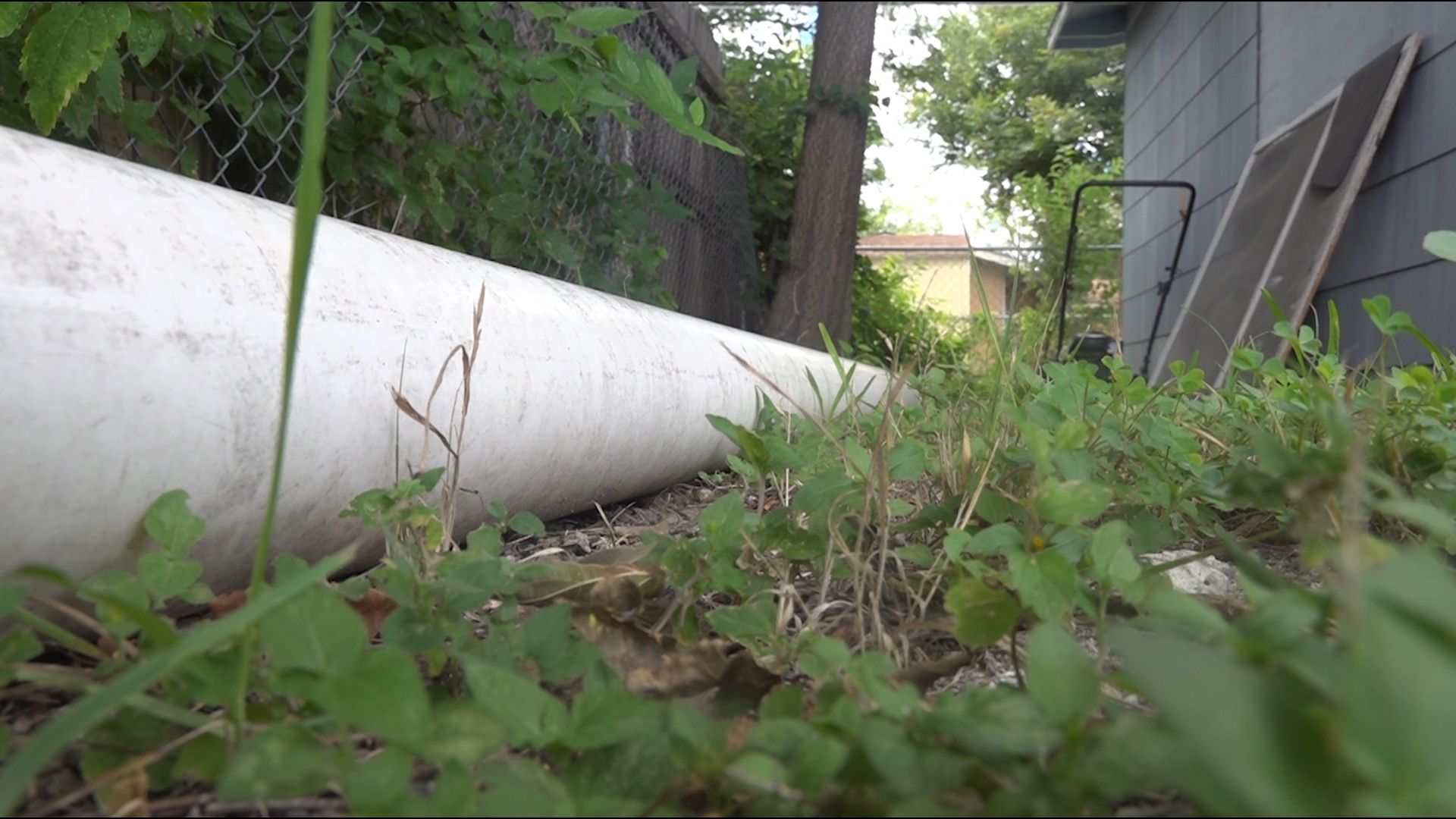SAN ANTONIO — Tammy Valladarez hired a contractor named Chad Rico last year at the end of June. She wanted a bathroom added to her master bedroom.
Valladarez said Rico had done work for a business she had worked at, so she thought she could trust him. He even helped her pick out tile for the bathroom. She paid Rico $5,000 up front on an app called "Joist" and agreed to pay the rest of the contract when it was finished.
Valladarez said Rico did have someone dig a ditch in her back yard and he brought some PVC pipe to the property.
But then, she said, he never did any additional work over the next few months. Six months later she started asking for a refund.
"I said, 'I just want to cancel the project. Can you just return my money back?'" Valladarez said. "He goes, 'yes I will" but he just kept giving me the run around every Friday."
Finally, Valladarez said the contractor changed his number in April of this year and she had no way to contact Rico. Valladarez had almost no recourse and decided to call KENS 5.
KENS 5 did eventually make contact with the contractor via email but the contractor has not definitively said when he will pay Valladarez back.
Fortunately, there are multiple questions you can ask any contractor to help you avoid this situation.
1. Does your contractor have an office or a business address you can identify?
The first thing you should ask a contractor is "where is your place of business?" Then do a web search for their address. If they work out of a home, or they don't have an office you can visit, you may have no way to find the contractor if something goes wrong. You can also verify a businesses address on the Better Business Bureau website.
Better Business Bureau spokesman Jason Meza said anyone can provide a business address and it's up to you to make sure the address is legitimate.
"It's up to us to verify that address exists, call ahead to make sure they have an office and have a local phone number that rings," Meza said. "We see so many businesses that start a business and six months later they've started another LLC trying to run away from previous issues."
Additionally, if you ever need to take a contractor to small claims court, you will need a business address when they can be served.
2. Ask for references.
Whether a contractor has an office or not, you should ask them for references. Every contractor needs to start somewhere but you should be able to speak to someone else they have worked for or look at reviews online. Again, the Better Business Bureau is a great resource for this. DO NOT accept pictures on their Facebook page as a reference.
3. Is your contractor a licensed plumber, electrician or HVAC technician?
You don't need a license to be a general contractor in Texas but you do need a license to do plumbing work, electrical work, or Air Conditioning & Refrigeration. Contractors can also get licensed with the City of San Antonio and other cities. Ask the contractors for proof of license or ask them for their license number. Be wary of hiring any contractor for a major remodeling job if they can't prove they're licensed.
4. Does the contractor have insurance?
Big renovation jobs come with a lot of liability. Meza told KENS 5 you need to make sure that your contractor is insured before they start. This both protects you if the contractor makes a mistake and if a contractor or subcontractor gets hurt.
"You don't want someone tripping and falling in the house and you are liable for that injury so insurance is also a huge deal when you are coming across a contractor and the subcontractors working under them that they employ," Meza said.
5. Will your contractor give your a full written agreement describing when the job starts and finishes.
You need to have a written contract with the person you hire that and a paper trail for all payments and changes. The contract must state when the job starts, when the job ends, how much you pay upfront, how much you pay in full, and what work is going to be performed. Everything should be spelled out and nothing should be left blank.
"Everything should be top to bottom on a piece of paper of some sort," Meza said.
The contract protects both yourself and the business you hire if there is a disagreement later. Make sure you understand everything in the contract, or write your own, to make sure you are in the driver's seat.
Finally, NEVER pay a contractor in cash. You must always have a paper trail to prove that you paid the other party. If you can't prove that you paid the money, the contractor can easily take it and run.
If you have a problem like this, we want to help you fix it! In our series, Call KENS, we do our best to solve problems for our viewers. The number to call is 210-470-KENS, or fill out this form.
MORE ON KENS
TRENDING:

